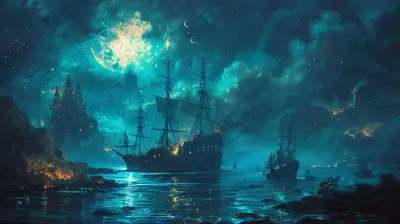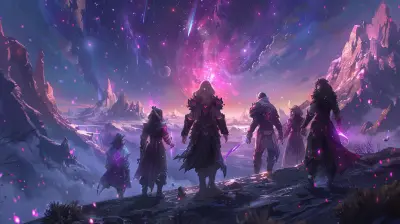The Games That Created Entire Genres
31 May 2025
Imagine playing a game so influential that it doesn't just define a generation—it births an entirely new genre. Some games do just that. They drop into the gaming world like meteors, leaving behind massive craters that evolve into fertile ground for countless imitators, spin-offs, and innovations. These are the trailblazers, the ones that dared to be different, and in doing so, created entire ecosystems of gameplay. Today, we’re diving into those legendary titles that didn’t just play the game—they rewrote the rules.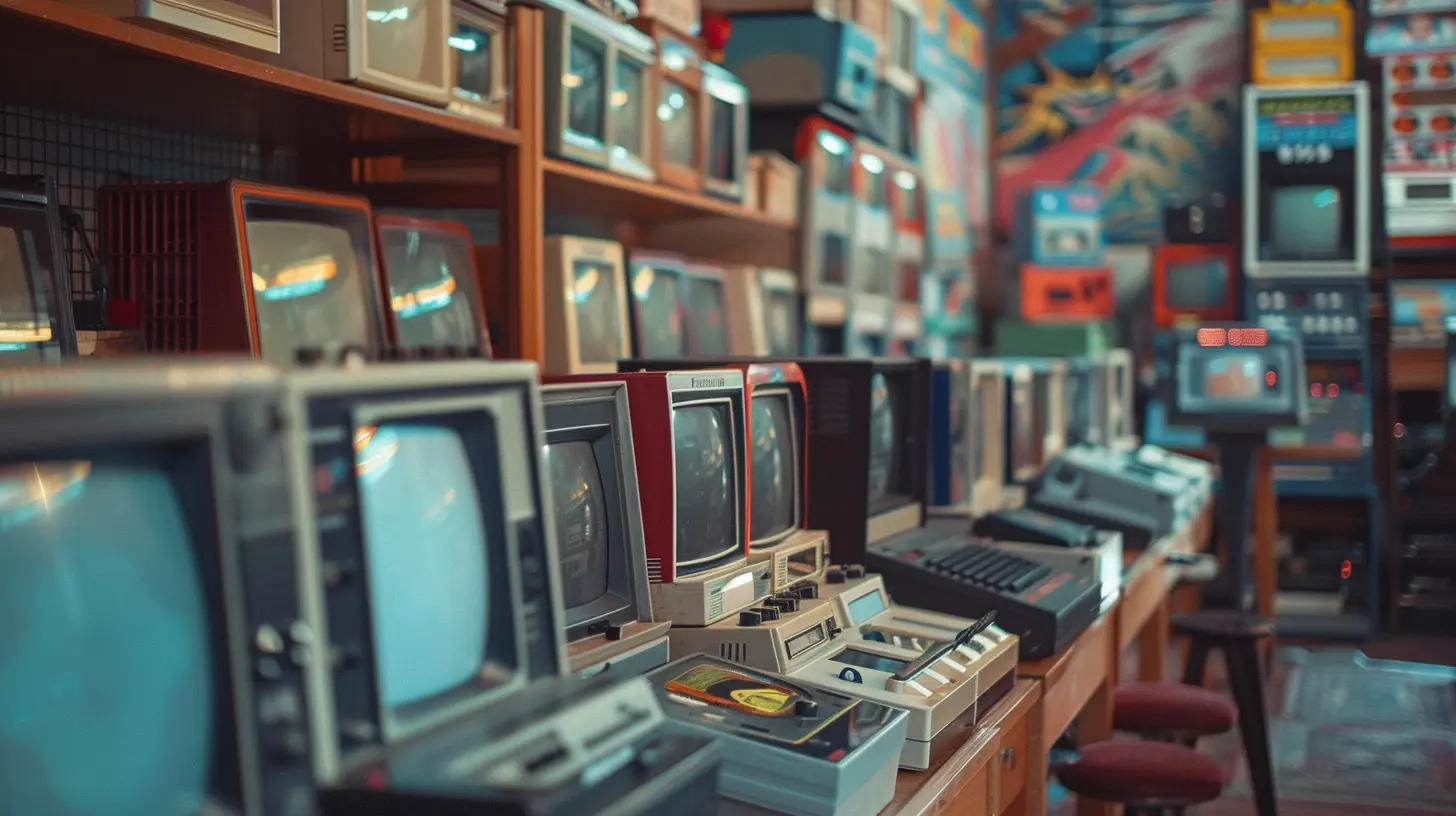
Pong (1972) – Birth of the Video Game Industry
Let’s kick things off with Pong, the granddaddy of video games. Sure, before Pong, there were other primitive games like Spacewar! or Tennis for Two. But Pong? Pong was the popular kid that turned video games into a household phenomenon. Created by Atari, it brought the arcade scene to life, paving the way for what would eventually become a multibillion-dollar industry.Here's the thing about Pong: it's basically virtual table tennis, but that simplicity is what made it revolutionary. People loved the straightforward gameplay—it was easy to pick up and hard to master. From there, the arcade boom exploded, and before we knew it, gaming had landed in our living rooms.
Would we even have esports or casual mobile games without Pong? Probably not. It planted the seed, and the industry’s roots grew from there.
Doom (1993) – The First-Person Shooter Masterpiece
Fast forward to the early '90s, and you get Doom, the game that single-handedly birthed the first-person shooter (FPS) genre. Before Doom, games like Wolfenstein 3D dabbled in FPS mechanics, but let’s be real—Doom perfected it. This game didn’t just break the mold; it smashed it with a chainsaw (literally).You’re shoved into the shoes of a marine battling demon hordes on Mars, and from the minute you fire your first shotgun shell, you’re hooked. The fast-paced action, gore-soaked aesthetics, and incredible level design set a new bar for gaming. Plus, Doom introduced modding to the world. Players could create their own levels, which was basically like giving fans the keys to the developer’s kingdom. How cool is that?
Today, the FPS genre dominates the gaming world with juggernauts like Call of Duty and Halo, but they all owe a big thank-you to Doom. 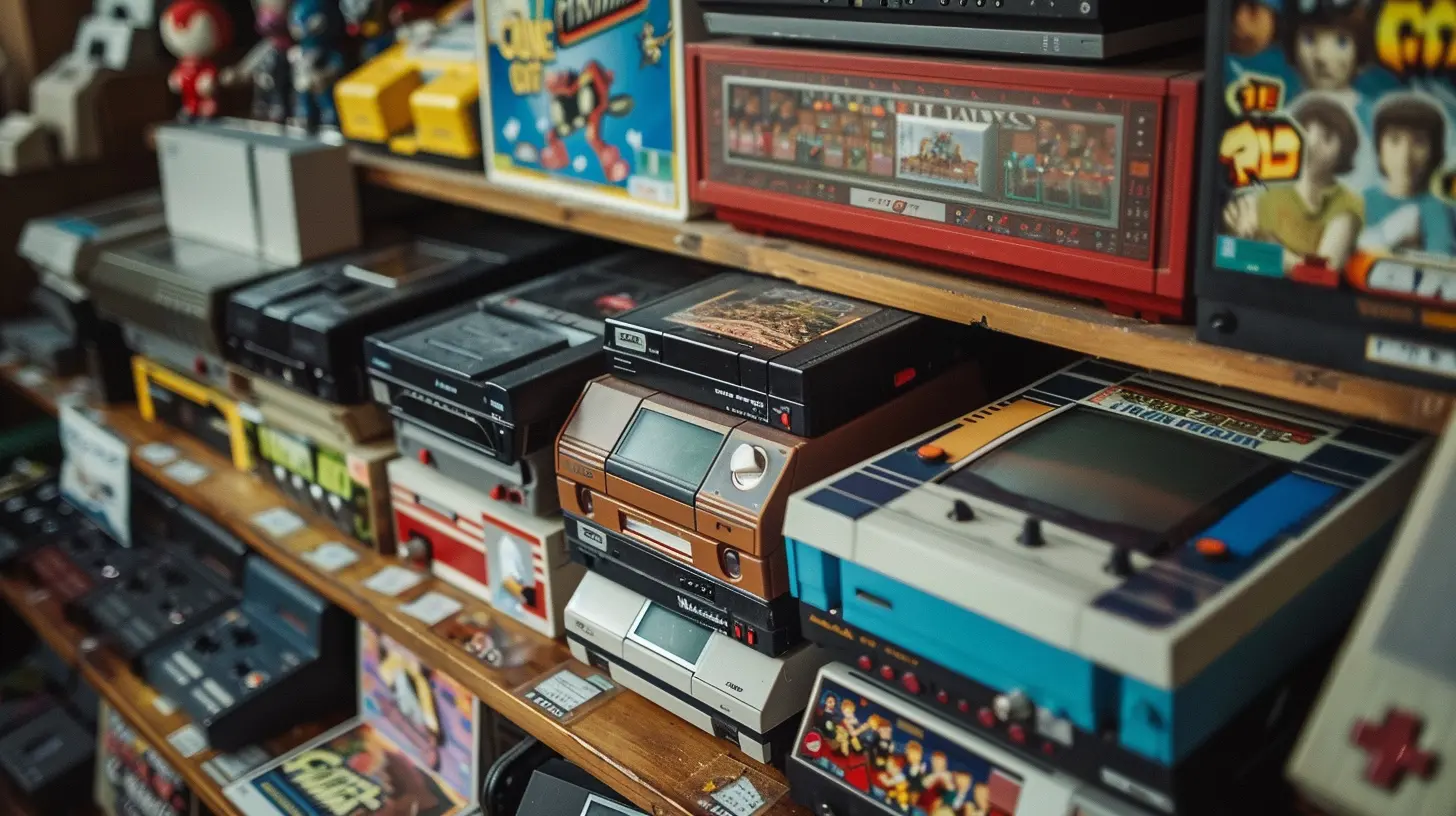
The Legend of Zelda (1986) – The Birth of Action-Adventure Games
You can’t talk about influential games without mentioning The Legend of Zelda. This Nintendo classic is the reason action-adventure games exist as we know them. When Zelda dropped in 1986, it was groundbreaking. Why? Because Zelda wasn’t just about twitch reflexes—it was about exploration, puzzle-solving, and storytelling.You played as Link, a courageous hero on a quest to save Princess Zelda and defeat the evil Ganon. But what made the game tick was its open-world design. It didn’t hold your hand; instead, it rewarded curiosity. Want to push that random rock? Boom, secret cave. Want to burn a bush? Surprise, hidden stairs! It was like being handed the blueprint to a magical land and being told, “Have fun.”
The DNA of Zelda can be seen everywhere, from modern open-world games like Skyrim to indie gems like Hollow Knight. It didn’t just create a genre—it inspired an idea of what games could be.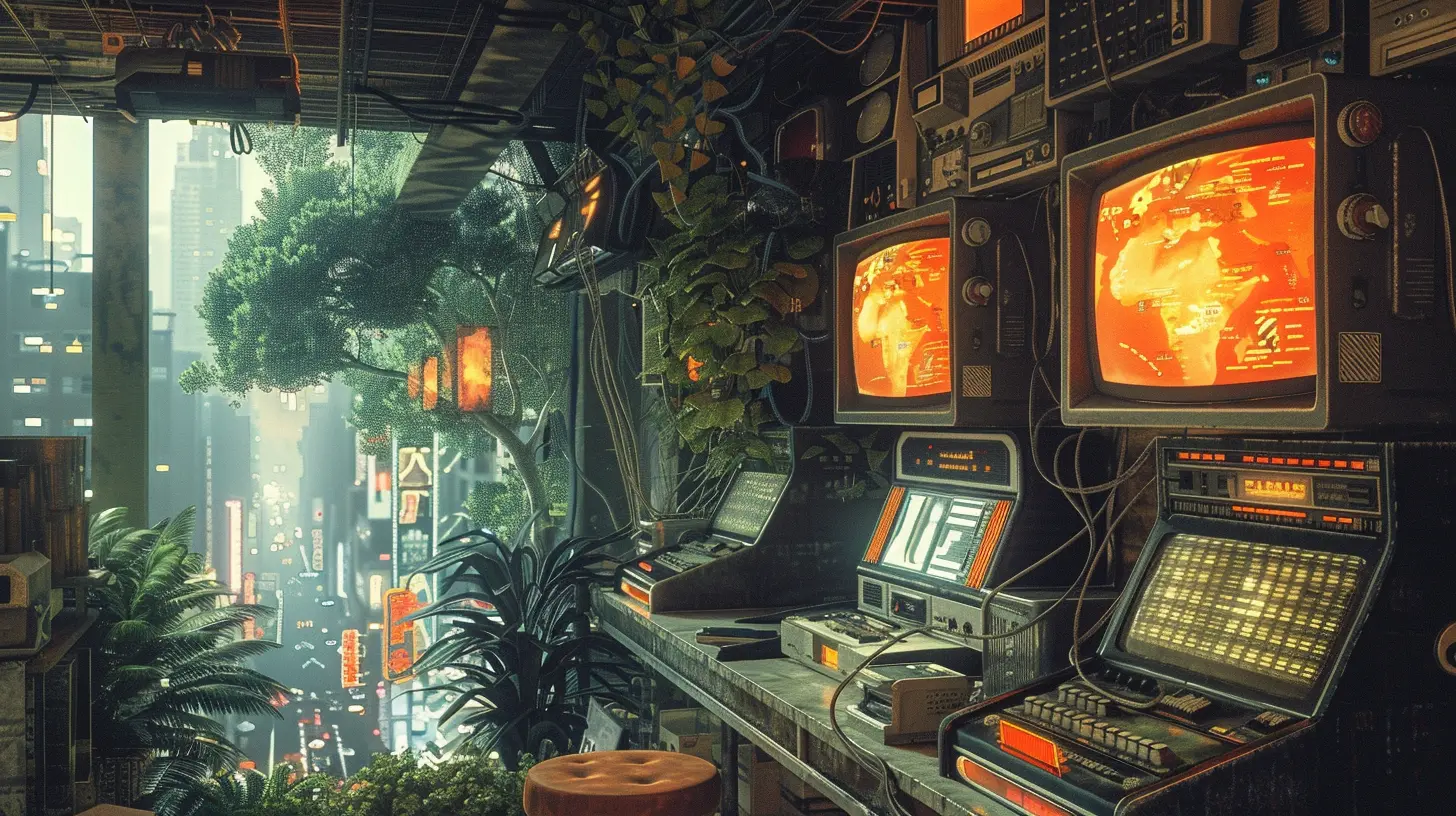
Street Fighter II (1991) – The Fighting Game Frenzy
Imagine walking into an arcade in 1991 and seeing two players duke it out on Street Fighter II. It was electric. People crowded around the cabinet, cheering on combos and perfectly timed Hadoukens. This Capcom classic launched the fighting game genre into the stratosphere.Why was it so important? For starters, Street Fighter II perfected the idea of competitive multiplayer. The one-on-one battles were strategic, fast-paced, and incredibly satisfying. It also introduced diverse characters with unique fighting styles, which added a layer of depth rarely seen at the time.
Games like Tekken, Mortal Kombat, and Super Smash Bros. all owe their existence to Street Fighter II. Even esports competitions owe a lot to it—matchups in fighting games were essentially the earliest version of modern competitive gaming.
Minecraft (2011) – Crafting and Creativity Unleashed
Fast forward to 2011 and a little indie game called Minecraft comes along and changes everything. It’s not an exaggeration to say that Minecraft created the sandbox survival genre. Sure, games like Terraria and Don’t Starve have their niche, but Minecraft is the undisputed king.What’s the big deal, though? Isn’t it just a game about breaking blocks? Well, yeah. But also, no. Minecraft gave players the tools to build, explore, and survive in an infinite, procedurally-generated world. It was like handing kids a box of LEGOs and saying, “Go nuts.”
The best part? It wasn’t just for kids. Everyone, from casual players to hardcore builders, found their niche in the game. And that’s why Minecraft is still kicking today—it’s a cultural phenomenon that encourages creativity more than any other title.
Grand Theft Auto III (2001) – Open-World Chaos Perfected
When Grand Theft Auto III dropped in 2001, it turned heads. No, scratch that—it stole cars, ran over pedestrians, and caused a city-wide police chase. This wasn’t just a game; it was a massive open-world experience that redefined what video games could be.Set in a living, breathing city, players could do whatever they wanted. Missions? Sure. Random chaos? Go for it. The open-ended gameplay, combined with the cinematic storytelling, was unheard of at the time.
Without GTA III, we wouldn’t have open-world giants like The Witcher 3 or Red Dead Redemption 2. It didn’t just inspire games; it shaped how we think about freedom in virtual spaces.
Dota (2003) – The MOBA Pioneer
Before League of Legends and Dota 2, there was Dota. Originally a mod for Warcraft III, this game essentially gave birth to the multiplayer online battle arena (MOBA) genre. It was grassroots gaming at its finest—just some fans messing with a game’s editor to create something entirely new.Who would’ve thought that controlling a single hero in a team-based strategy game would become one of the most popular genres in gaming? MOBAs are now a staple of competitive gaming, with massive tournaments and prize pools. And it all started with a humble little mod.
Super Mario Bros. (1985) – The Platforming Pioneer
Last but definitely not least, we have Super Mario Bros. If Pong was the spark of the gaming industry, then Super Mario Bros. was the explosion. Released in 1985 for the Nintendo Entertainment System (NES), this game didn’t just create the platformer genre—it perfected it.Everything about it—tight controls, creative level design, catchy music—was iconic. You play as Mario, a plumber on a quest to save Princess Peach, and the gameplay was so smooth it felt like magic. Jumping over Goombas, bouncing off Koopas, and timing your flagpole leaps were endlessly fun.
Without Mario, would we have modern platformers like Celeste or Hollow Knight? Probably not. Mario might just be the most influential plumber in history!
Conclusion
So there you have it—the games that didn’t just entertain us but literally changed the game. Each of these trailblazers did something so bold, so fresh, that they carved out entire genres where there were none before. They’re the reason we have the amazing variety of games we enjoy today, from epic open worlds to competitive arenas.The beauty of gaming is its constant evolution, but even as the industry grows, these titles remain as a reminder of where it all began. They were the pioneers, and honestly? They deserve all the respect in the world. Next time you’re sinking hours into your favorite FPS, RPG, or sandbox game, remember—you’re standing on the shoulders of giants.
all images in this post were generated using AI tools
Category:
Retro GamesAuthor:

Greyson McVeigh
Discussion
rate this article
3 comments
Otis Vaughn
What a fascinating exploration of gaming history! It’s incredible how certain titles not only defined genres but also shaped the creativity of future developers. Let’s celebrate these groundbreaking games that continue to inspire and influence the gaming landscape today!
June 8, 2025 at 4:20 AM

Greyson McVeigh
Thank you! I'm glad you enjoyed the exploration of these pivotal games and their lasting impact on the industry.
Dax Harris
Great article! It's fascinating to see how these groundbreaking games shaped entire genres. I'd love to hear more about the lesser-known titles that influenced today’s gaming landscape. Keep up the great work!
June 6, 2025 at 3:35 AM

Greyson McVeigh
Thank you for your kind words! I'm glad you enjoyed the article. I'll definitely consider diving into those lesser-known titles in future pieces!
Thor Acevedo
Who knew a bunch of pixels could spark entire genres? It’s like that one friend who starts a dance craze at a party—suddenly everyone's busting moves, and you’re just trying not to step on any toes!
June 2, 2025 at 2:19 AM

Greyson McVeigh
Absolutely! It's fascinating how one innovative game can inspire a whole movement, much like a trendsetter on the dance floor!
